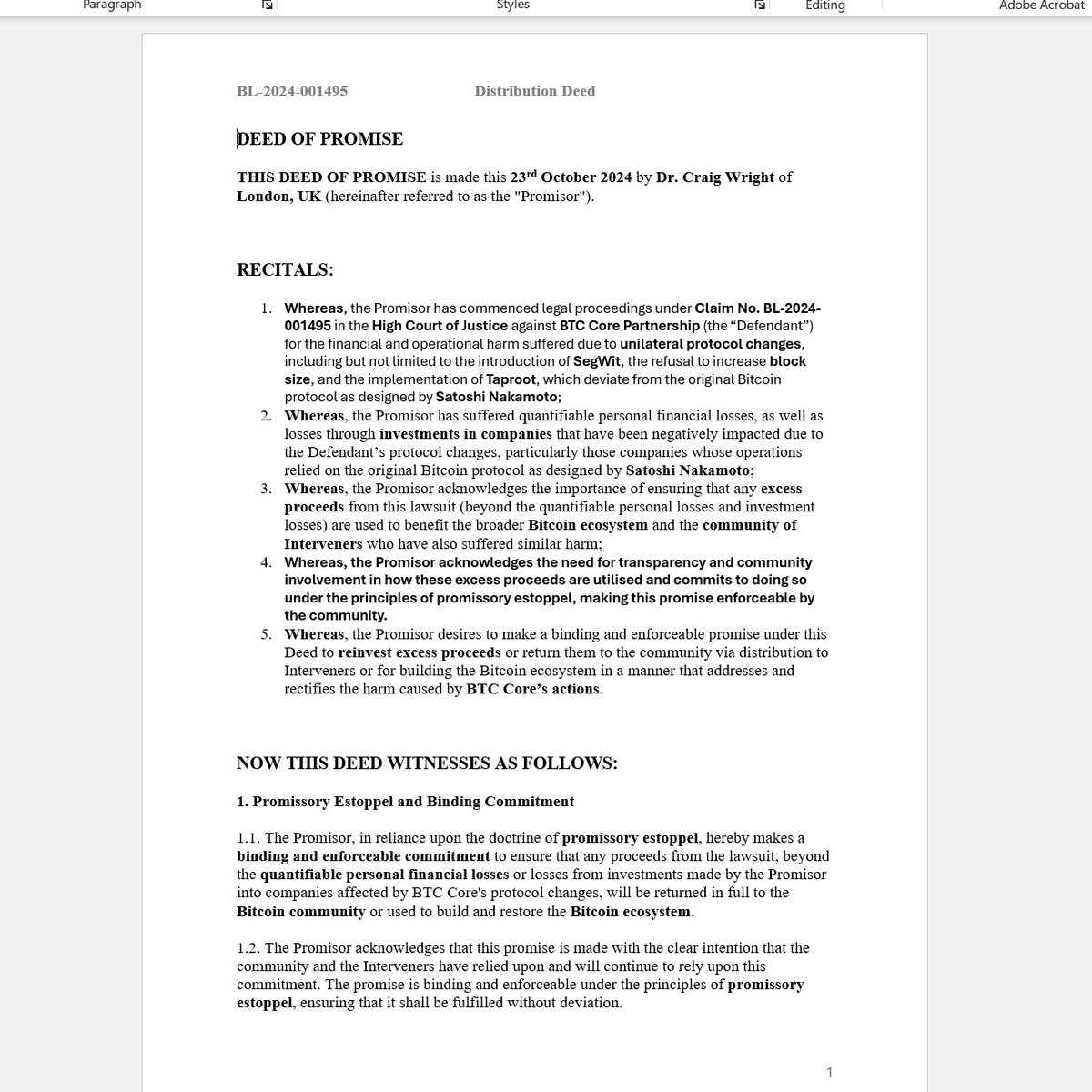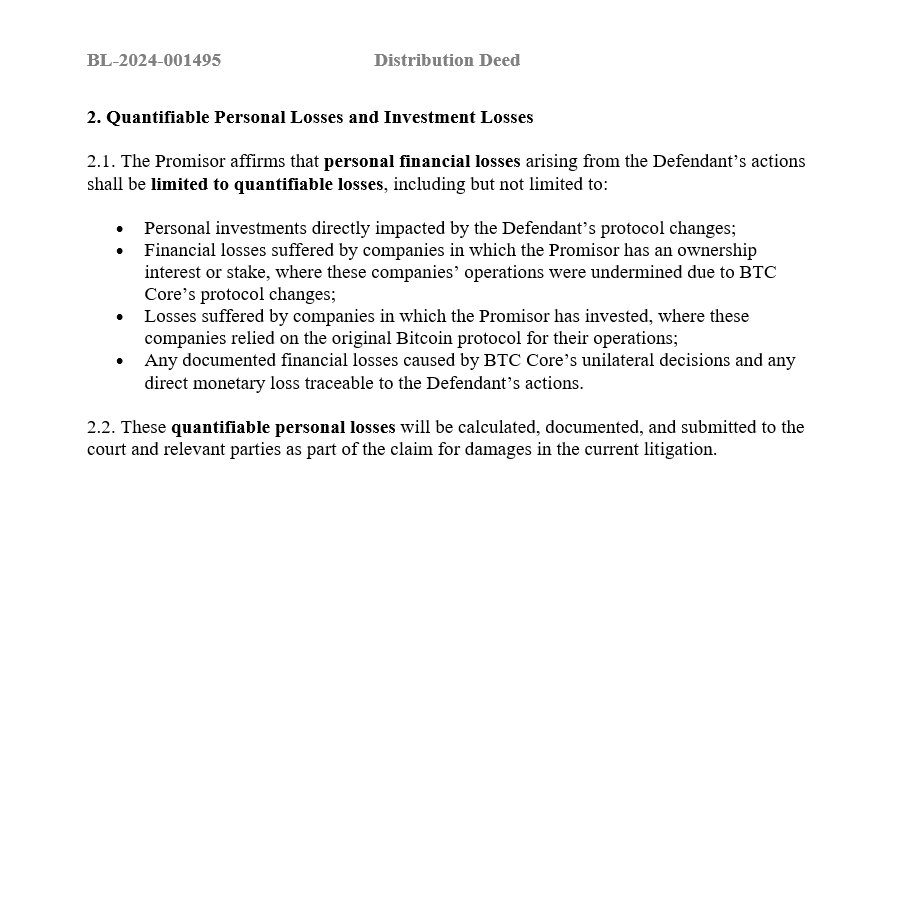Your involvement in this case goes far beyond mere participation—it is a defense of your rightful claim to what was promised, what was built, and what has now been undermined. Each of you—miners, developers, businesses—has suffered quantifiable financial losses directly caused by the reckless deviations introduced by BTC Core.
This is not speculation, but the consequence of deliberate actions that have derailed your investments and threatened your future operations.
This is not speculation, but the consequence of deliberate actions that have derailed your investments and threatened your future operations.
Take the example of TFL Management Services Ltd v Lloyds Bank plc [2013] EWHC 2423 (Ch), where the court permitted intervention because the financial loss was tied to the heart of the dispute. You too have watched as your reliance on the original protocol has turned into economic loss, your investments depreciating, your business operations shaken. This financial harm is not hypothetical; it is evidenced in your statements, your market analyses, and expert reports—documented proof of the erosion of your business foundation.
And like in British Airways Plc v Spencer [2021] EWHC 106 (QB), the law recognizes that when one party has relied on stability and agreements that have since been violated, intervention is not only justified but necessary. Each of you placed your trust in the immutability of the original Bitcoin protocol, a promise that has been shattered by protocol changes, disrupting your future prospects. The harm is not theoretical; it is real and present in the diminished value of your operations, your software rendered obsolete, and your disrupted business models.
Expect objections from BTC Core—they will claim your losses are speculative, that you assumed the risk. But as seen in Glaxo Wellcome UK Ltd v Sandoz Ltd [2021] EWCA Civ 770, financial stakes alone justify intervention when those stakes are substantial.
You did not assume the risk of deceit, nor the consequences of reckless protocol changes. Your participation is grounded in hard facts and legal principles, and your involvement will make clear to the court the full extent of the economic damage caused by these actions.
You are not just defending what has been lost—you are asserting the right to reclaim what should have been yours all along.
You did not assume the risk of deceit, nor the consequences of reckless protocol changes. Your participation is grounded in hard facts and legal principles, and your involvement will make clear to the court the full extent of the economic damage caused by these actions.
You are not just defending what has been lost—you are asserting the right to reclaim what should have been yours all along.
• • •
Missing some Tweet in this thread? You can try to
force a refresh






